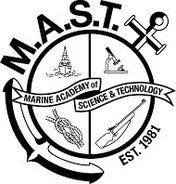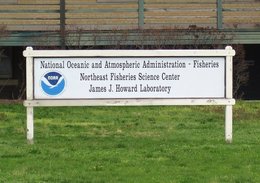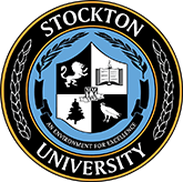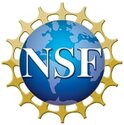I earned my doctoral degree by studying non-human, non-model evolutionary ecology, and wanted to use my powers (AKA Ph.D.) for good in my first "real" job. I hoped to find a position that would allow me to contribute to human health care while expanding my skills in running a lab and broadening my biological knowledge horizons.
I am happy to say that I found all of those things and more in my current job as the Lab Supervisor for Jonas Schluter's group at the NYU Langone Health Grossman School of Medicine. I manage the day-to-day operations of Jonas's new microbiology wet lab and supervise a variety of activities related to basic and clinical microbiome research.
Much more coming soon!
I outline my journey in science below. You can learn more details by clicking the links and perusing my blogs.
Enjoy :)
I am happy to say that I found all of those things and more in my current job as the Lab Supervisor for Jonas Schluter's group at the NYU Langone Health Grossman School of Medicine. I manage the day-to-day operations of Jonas's new microbiology wet lab and supervise a variety of activities related to basic and clinical microbiome research.
Much more coming soon!
I outline my journey in science below. You can learn more details by clicking the links and perusing my blogs.
Enjoy :)
High School (2006-2010) & UNdergrad (2010-2014)I attended the Marine Academy of Science and Technology vocational high school in Sandy Hook, NJ with the hopes of one day becoming a marine biologist. I learned the basics of conducting a research project, as well as some marine fieldwork skills. From MAST I went to The Richard Stockton College of NJ (now Stockton University), where I majored in Biology after realizing that I wanted to know more about life and the many forms it takes outside of aquatic environments.
Dr. Guy Barbato was my research advisor at Stockton, and I collaborated with a team of student researchers on multiple different projects. I also worked as a Bradford E. Brown intern for the National Oceanic and Atmospheric Administration (NOAA) for a summer. This incredible experience paired with those I had in Dr. Barbato's lab group cemented my dream of becoming a research scientist. And so, I applied to grad school. After growing to love Biology as a more general science, I wanted to find an advisor who shared my interests in multidisciplinary research. Dr. George (PJ) Perry fit the bill perfectly, and his lab group became a second, slightly nerdy, family :) |
Graduate School (2014-2020) |
Neandertals
My first bioinformatics adventure was in the form of an analysis involving Neandertal exomes. My advisor, George "PJ" Perry, and I endeavored to learn more about our closest relatives and possible factors involved in their disappearance.
LEMURS
I aimed to unite several methodologies to study the living and extinct lemurs of Madagascar with regards to human hunting pressures. Lots of bones, 3D scanning, and awesome field trips :D I generated 3D surface scan data for hundreds of endangered and extinct primates, now available on MorphoSource.
Collaborators: Laurie Godfrey, Rich Lawler, Heritiana Randrianatoandro, Laurie Eccles, Brendan Culleton, Tim Ryan.
Collaborators: Laurie Godfrey, Rich Lawler, Heritiana Randrianatoandro, Laurie Eccles, Brendan Culleton, Tim Ryan.
Conch
I received a Short-Term Fellowship from the Smithsonian Tropical Research Institute to travel to Panama and collect samples of marine snail tissue and shells. I developed the first protocol to extract high quality DNA from conch shells, and tested whether this protocol would be effective when applied to shells up to thousands of years old.
Collaborators: Aaron O'Dea, Thomas A. Wake, Stephanie Marciniak.
Collaborators: Aaron O'Dea, Thomas A. Wake, Stephanie Marciniak.
Lizards
I worked with Tracy Langkilde's lab to extract and sequence whole genomes from hundreds of fence lizards, and collaborated with a larger team to generate a reference genome for S. undulatus. To quote my #1Tweet1P: Humans introduce fire ants -> ants bite/eat fence lizards -> longer-legged lizards escape better. Genetic adaptation to invasion?
Collaborators: Tracy Langkilde, Christina M. Bergey.
Collaborators: Tracy Langkilde, Christina M. Bergey.











